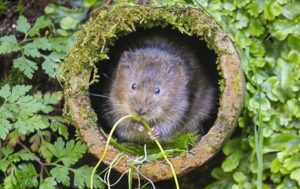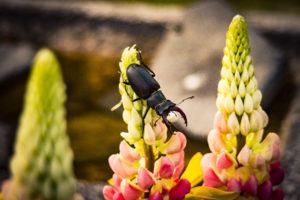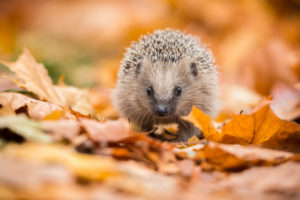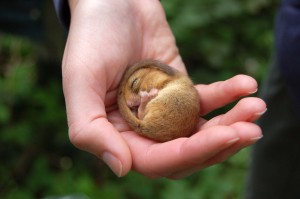Make space for wildlife
Make your donationWhat is the problem?
Hedgehogs, dormice, and water voles used to be common in Britain. But now, they’re dying out along with many other treasured and beautiful animals. It’s hardly surprising – for years our forests, woodlands, allotments and gardens have been developed on, fenced off and paved over. But these green spaces are wild animals’ homes. Their destruction means we must make space for wildlife. Hedgehogs have declined by a third in just 20 years, and dormice are already extinct in many counties.
What are we doing?
We’re protecting all sorts of species that are in danger because of habitat destruction – water voles, otters, stag beetles and mountain hares – the list goes on. We carry out research. We repair and connect up wild areas and work with developers to consider the impact on wildlife when using or building on green spaces. We need your help to make space for wildlife.
Hedgehogs
Hedgehogs are our only spiny mammal, and are a gardener’s best friend. But we have lost one in three hedgehogs since 2000. They’re losing the spaces they need to feed and hibernate in both the countryside and in our towns. They’re dying out as a result.
Dormice
Dormice have declined severely in the last 100 years and our woodlands are not always the safe spaces they once were. Many woods lack the hazelnuts and berries that dormice eat. And many hedgerows that once connected woodlands are gone, leaving dormice isolated and at risk.
 Water voles
Water voles
Water voles came close to extinction in the 1990s. The river banks they live in are routinely destroyed or concreted over, leaving them with no safe spaces to live, and much more likely to be killed by predators.
 Stag beetles
Stag beetles
Stag beetles need dead wood. They naturally recycle it, enriching the soil and benefitting many other animals and plants. But dead wood is often destroyed when old trees and stumps are removed, leaving stag beetles with fewer places to live.
We must make space for wildlife



